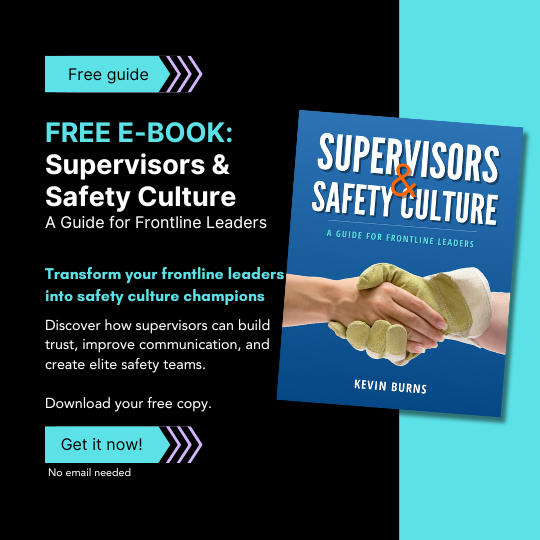Why Supervisor Development Is Your Best Crisis Prevention Strategy
When emergencies strike, are your frontline supervisors prepared to lead? Learn why developing supervisor leadership skills is your most effective crisis prevention strategy and how safety professionals can champion this critical effort.

Most companies focus on emergency procedures and equipment when preparing for workplace crises. But the truth is, no crisis response plan can overcome unprepared leadership at the scene.
When emergencies happen, your frontline supervisors become the most influential people in your organization. They're the ones making critical decisions, communicating with team members, and determining whether the situation gets resolved efficiently or spirals out of control. Yet surprisingly few organizations invest in developing their supervisors' crisis leadership capabilities.
Safety professionals have the responsibility and opportunity to champion supervisor development as the cornerstone of effective crisis prevention and response. Here's why this matters and how to make it happen.
The Supervisor's Critical Role in Crisis Management
Consider your organization's most likely emergency scenarios - a serious injury, equipment failure, chemical spill, or natural disaster. In those critical first minutes, who's making the decisions that could save lives, prevent further damage, and protect your people?
It's not your executive team or the safety department. It's your frontline supervisors.
In The CareFull Supervisor, I emphasize that "Trust comes from certainty. Certainty comes from knowing your team members' motivation and commitment are focused on the team mission." This principle becomes even more critical during emergencies, when team members must trust their supervisor's guidance without hesitation.
An underdeveloped supervisor might:
- Panic and make emotional decisions
- Freeze, providing no guidance when it's needed most
- Focus on production rather than people
- Communicate poorly, creating confusion
- Fail to follow established protocols
By contrast, a well-developed supervisor will:
- Remain calm and think clearly under pressure
- Make decisions based on established priorities
- Communicate effectively with team members
- Adapt to changing circumstances
- Put people's safety first, every time
Development Before Deployment
The skills that make supervisors effective during crises are the same ones that make them effective every day - they're just tested more severely during emergencies.
Team members will follow a leader they trust, even in frightening or uncertain situations.
But this trust can't be developed in the moment. It must be built through consistent leadership practices long before any crisis occurs. The same goes for other critical crisis leadership skills like:
- Clear communication
- Decisive action
- Emotional self-regulation
- Adaptability
- People-centered decision making
How Safety Can Champion Supervisor Development
As safety professionals, you're uniquely positioned to advocate for supervisor development as a critical component of crisis preparedness. Here's how:
1. Connect development to outcomes: Show your managers how developed supervisors reduce the impact of emergencies. Use case studies and examples where leadership skills made the difference between minor incidents and major disasters.
2. Include leadership skills in emergency planning: When creating response procedures, highlight the supervisor's leadership role and the skills they'll need. Use this to justify investment in development.
3. Practice leadership, not just procedures: During emergency drills, evaluate supervisors on their leadership abilities, not just their technical knowledge. Provide constructive feedback afterward.
4. Advocate for formal development: Programs like our PeopleWork Supervisor Academy are specifically designed to build the leadership skills supervisors need both during normal operations and crises. The investment pays dividends every day, not just during emergencies.
5. Document and share successes: When supervisors handle difficult situations well, document what they did and share these stories to reinforce the value of leadership development.
The most effective crisis prevention strategy isn't just having the right equipment or procedures - it's having supervisors with the leadership skills to implement those procedures effectively and adapt when things don't go according to plan.
By investing in supervisor development through programs like our PeopleWork Supervisor Academy, you're not just preparing for potential emergencies - you're building a stronger, safer organization every day.
When a crisis occurs - and eventually, one will - you'll be grateful you focused on developing your frontline leaders.






